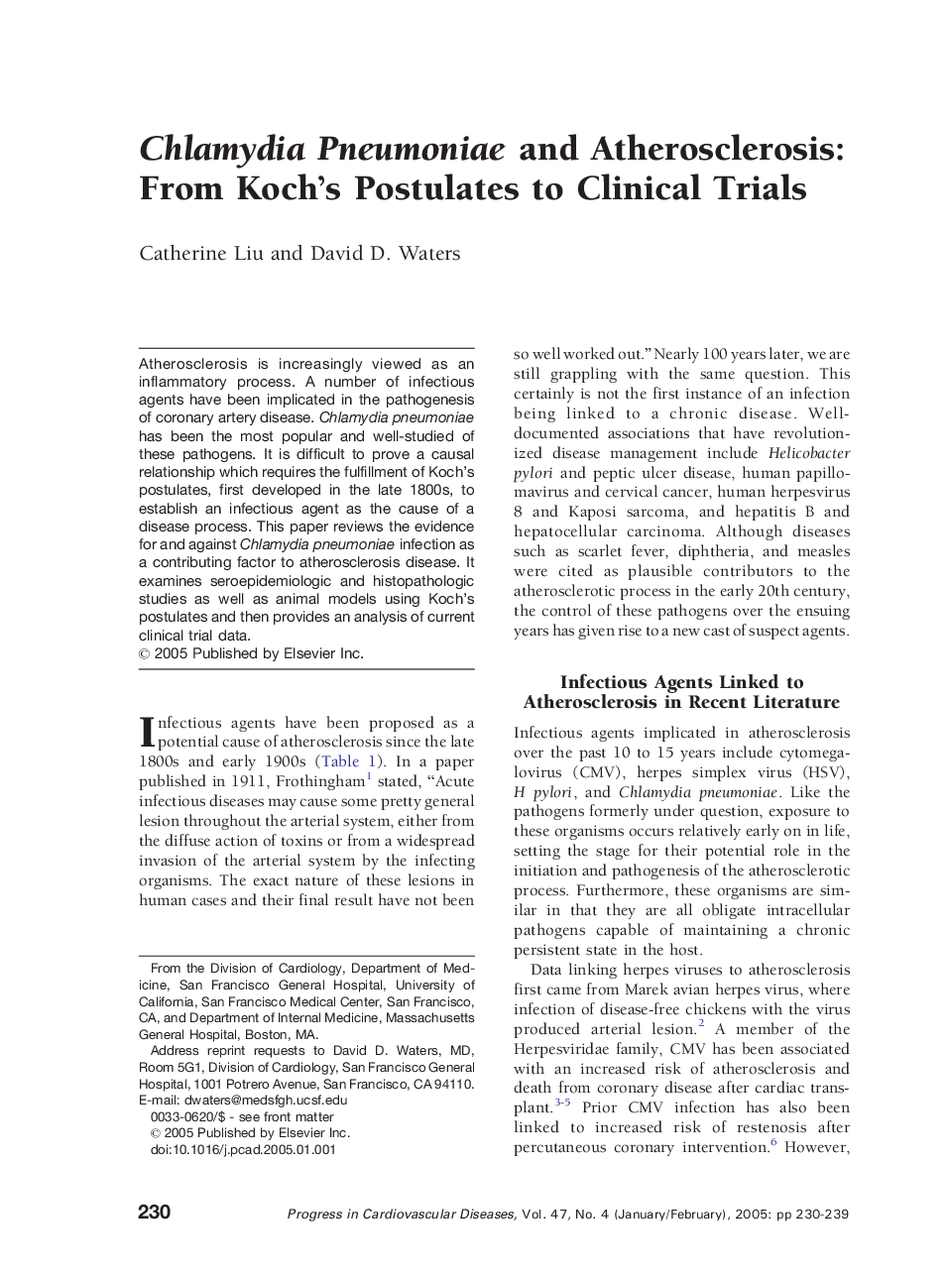| Article ID | Journal | Published Year | Pages | File Type |
|---|---|---|---|---|
| 9179065 | Progress in Cardiovascular Diseases | 2005 | 10 Pages |
Abstract
Atherosclerosis is increasingly viewed as an inflammatory process. A number of infectious agents have been implicated in the pathogenesis of coronary artery disease. Chlamydia pneumoniae has been the most popular and well-studied of these pathogens. It is difficult to prove a causal relationship which requires the fulfillment of Koch's postulates, first developed in the late 1800s, to establish an infectious agent as the cause of a disease process. This paper reviews the evidence for and against Chlamydia pneumoniae infection as a contributing factor to atherosclerosis disease. It examines seroepidemiologic and histopathologic studies as well as animal models using Koch's postulates and then provides an analysis of current clinical trial data.
Related Topics
Health Sciences
Medicine and Dentistry
Cardiology and Cardiovascular Medicine
Authors
Catherine Liu, David D. Waters,
